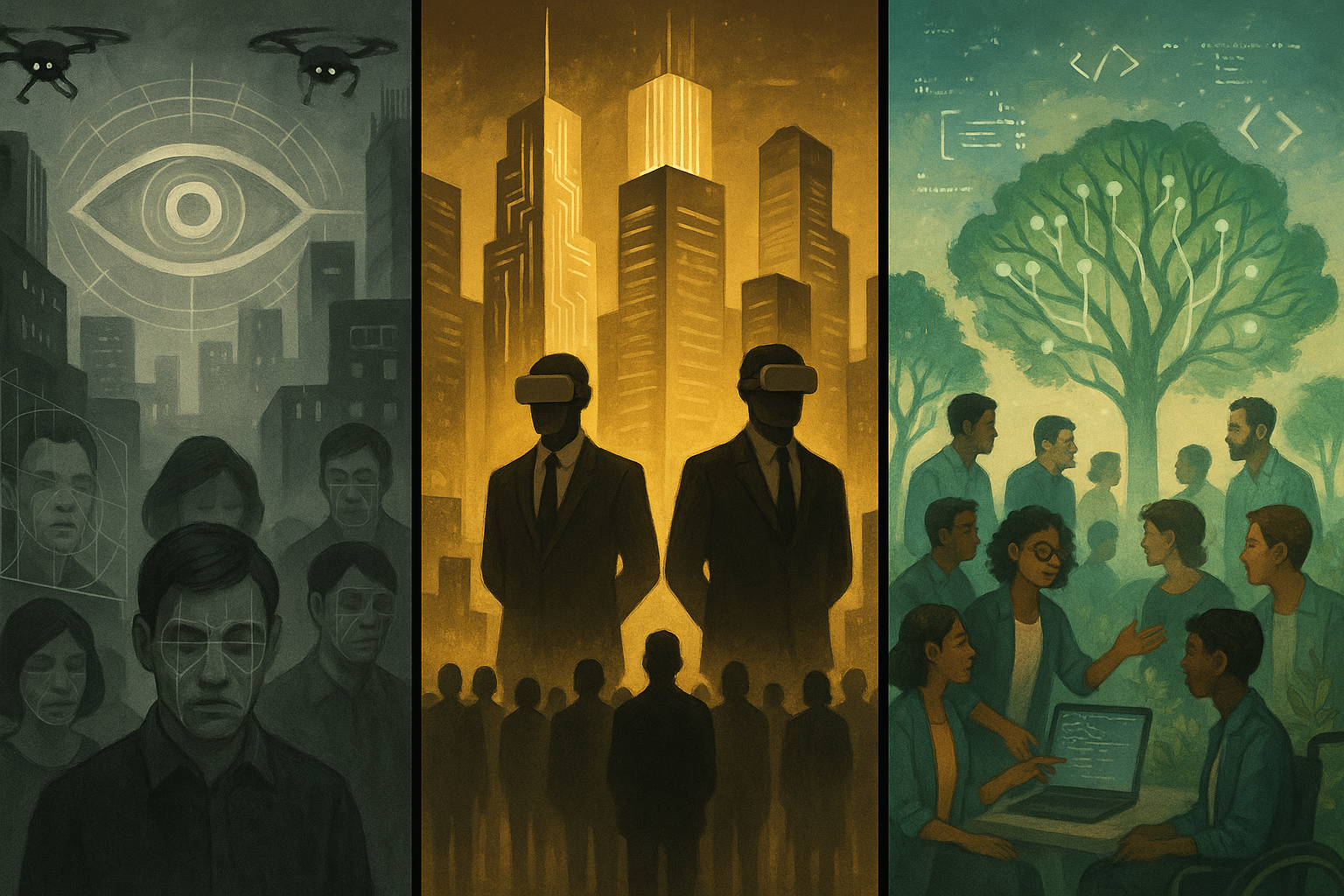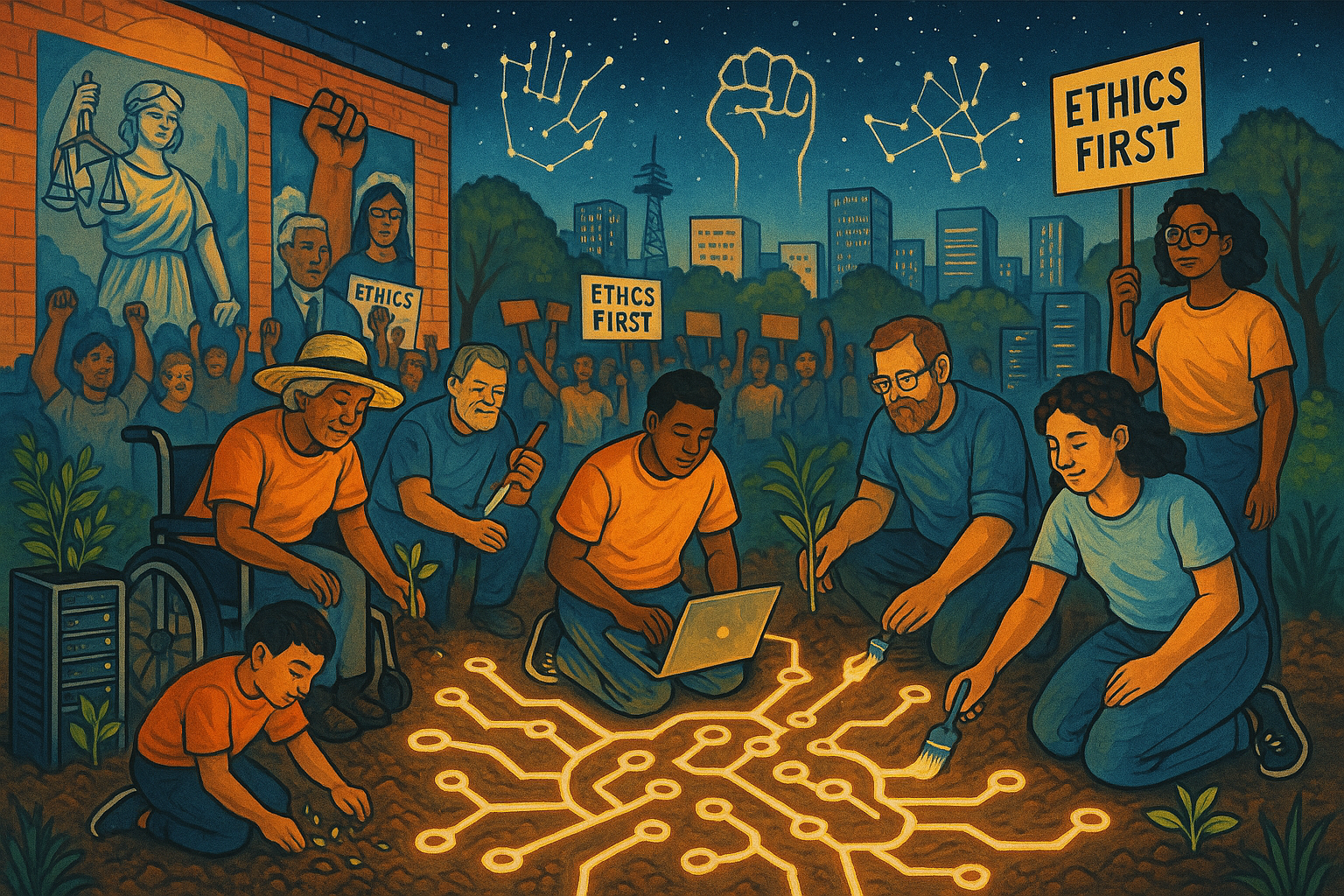Lesson Summary
We stand at an inflection point. The AI systems emerging today will shape society for generations, yet most people feel like passive observers of technological change rather than active participants in creating our shared future. This final lesson synthesizes everything we've learned and transforms it into practical wisdom for navigating—and shaping—the age of artificial intelligence. You'll leave with both a clear understanding of AI's current capabilities and limitations, and a toolkit for engaging thoughtfully with the technology that's reshaping our world
Where We've Been: The Story So Far
Over these three chapters, we've journeyed from the fundamental question "What is AI?" to the deeper challenges of "What kind of AI do we want?" Let's trace that path:
Chapter 1 revealed that today's AI is powerful but narrow—excelling at specific tasks while lacking the general intelligence that exists only in science fiction. We learned that current AI systems are tools, not minds, but tools powerful enough to reshape entire industries.
Chapter 2 showed us how these systems actually work—how neural networks learn patterns from data, how biased training creates biased outcomes, and how the technical choices made by engineers ripple out into real-world consequences for millions of people.
Chapter 3 confronted the hardest questions: Who gets to build AI? Whose interests does it serve? How do we preserve human agency and dignity in a world increasingly mediated by algorithms?
Now comes the crucial question: What do we do with this knowledge?
Is This Our Future?
Collective Action: Building Better AI Together
The Power of Community Engagement
Individual actions matter, but systemic change requires collective effort. Here's how communities are successfully shaping AI deployment:
Local Success Stories:
San Francisco's Facial Recognition Ban: Community organizers educated city council members about the bias and privacy implications of facial recognition technology, leading to a ban on city government use of the technology.
The Fight Against Amazon's HQ2 Surveillance: Community coalitions in New York successfully opposed Amazon's plans for a heavily surveilled "smart city" headquarters.
Organizations Making a Difference
The Three Futures We're Building Toward
Every AI system deployed today is a vote for one of three possible futures:
Future 1: Techno-Authoritarianism A world where AI enables unprecedented surveillance and control. Governments and corporations use AI to monitor, predict, and manipulate human behavior. Individual privacy disappears. Social credit systems determine access to opportunities. Algorithmic decision-making becomes invisible and unaccountable. This future already exist in various countries.
Future 2: AI Plutocracy A world where AI concentrates power and wealth in the hands of a few tech companies and their owners. AI systems serve corporate interests over human needs. The benefits of AI productivity gains flow primarily to capital rather than labor. Digital divides become chasms that separate the AI-empowered from the AI-excluded. Market logic dominates human values.
Future 3: Democratic AI A world where AI systems are designed to serve human flourishing and social justice. AI augments human capability rather than replacing human agency. The benefits of AI are widely shared. AI systems are transparent, accountable, and aligned with democratic values. Communities have meaningful input into how AI affects their lives.
We are not passive observers of this choice. Every decision about how to design, deploy, and regulate AI systems is steering us toward one of these futures.
How to Get Involved
Start Local:
Attend city council meetings when AI or surveillance technology is discussed
Join or form community groups focused on technology issues
Advocate for algorithmic accountability in local government
Support local businesses that use AI ethically
Think Regionally:
Contact state representatives about AI regulation
Support state privacy legislation
Advocate for ethical AI procurement policies
Join statewide digital rights coalitions
Engage Nationally:
Contact federal representatives about AI policy
Support organizations advocating for federal AI regulation
Participate in public comment periods for AI-related regulations
Vote for candidates who understand AI issues
Act Globally:
Support international AI governance efforts
Learn from AI policy developments in other countries
Participate in global digital rights movements
Share knowledge across borders
Course
Complete!
Thank you for completing the Intro to AI course! Your curiosity, engagement, and commitment to understanding this powerful technology mark an important step toward a more just and inclusive digital future. We believe that informed individuals like you are essential to shaping the ethical landscape of AI. If you’re ready to take the next step or want to explore how you can get more involved—whether locally or globally—we’d love to hear from you. Reach out to us anytime; your voice matters.


